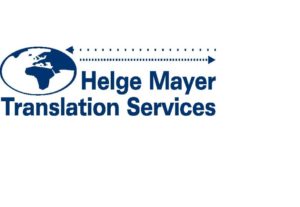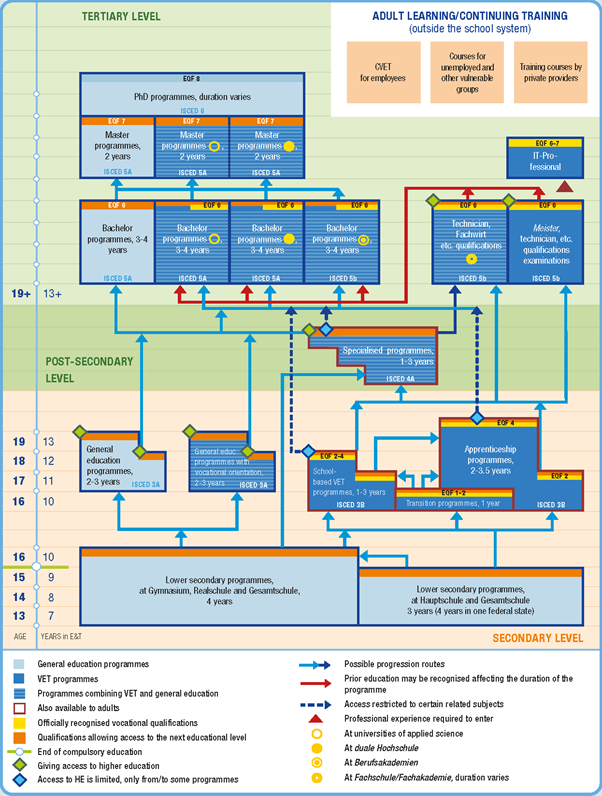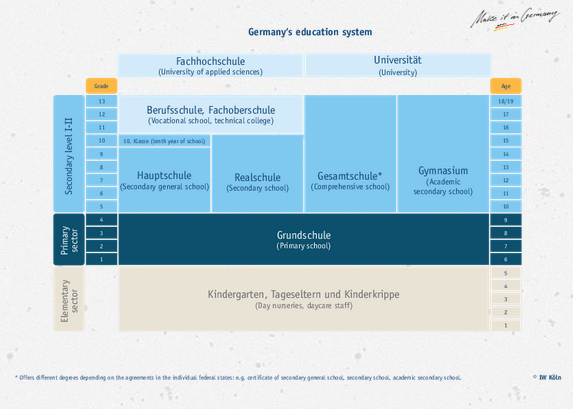Depending on the situation, it might be necessary to have either your Matric/Grade 12 or South African degree or other qualifications and experience formally recognised in Germany.
You will typically need this if you want to further your studies in Germany, want to work in a regulated profession or have your vocational training recognised. A list of regulated professions in the EU can be found on the European Union database.
Recognition of vocational qualifications
The official portal of the German government for the recognition of foreign professional qualifications is the Anerkennung in Deutschland website. They focus on vocational training/skilled workers. Also, have a look at Make it in Germany – who needs recognition? The Federal Institute for Vocational Education and Training the IHK and the Arbeitsagentur have valuable information about the recognition of foreign vocational qualifications. Another excellent government-funded website is the IQ Integrated through Qualification – service for Immigrants. If you want to apply for a job in Germany in your qualified vocational profession, or professional experience, the rule is that you will need to have your qualifications/experience formally recognised, there are of course exceptions for example in the IT field.
Visa for recognition of foreign qualifications
You can apply for a visa for the recognition of foreign qualifications.
This is related to company training courses, technical training courses etc.
“Have you applied to have your professional qualifications recognised and the competent authority for the recognition procedure in Germany has determined that your qualifications cannot be fully recognised due to missing qualifications? In such cases, you can attend a qualification program in Germany in order to acquire the missing theoretical and/or practical skills.”
Recognition of University degrees
Fachhochschule (FH)
University of applied sciences. Practical approach to learning
Technical Univeristy (TU)
Researched based learning. Good for Masters and PhD
The Anabin database provides information on the evaluation of foreign educational certificates and supports authorities, employers and private individuals in classifying a foreign qualification in the German education system. It is only available in German. It basically has a list of recognised degrees and institutions. If your qualification and university are listed there, and you are not working in a regulated profession, there is usually no need to have your degree formally recognised, unless asked for. A list of regulated professions in the EU can be found on the European Union database. Examples are doctors, nurses, lawyers, teachers, educators, and engineers
If your degree is not on the Anabin site, please refer to the Central Office for Foreign Education.
The Make It in Germany website has a good page on Foreign academic qualifications and the recognition procedure.
Another helpful site is Anerkennung in Deutschland, from the Federal Ministry of Education and Research. You can search by profession.
Stuying in Germany
If you would like to study in Germany, please refer to these pages.
Information about University entrance qualification (“hochschulzugansberechtigung” can be found on Uni-assist and the Study in Germany website

Study in Germany
Types of learning institutions Hochschule is the name for higher education. Under this, you can get the following institutions. Fachhochschule – University of applied sciences.

School Information
The German School system is quite unique and distinguishes itself from the South African models in a number of ways Types of schools There are

Prep Courses and GRE Tests
Prep Course for University The study in Germany website is an excellent “If you want to study in Germany as a non-EU international student, you

List of Long Stay Visas
Long Term visas are seen as visits longer than 90 days and will typically be for work or study visits. If your application is approved,
Where to find additional information
- Make it in Germany – who needs recognition
- KMK – Professional Recognition
- Anerkennung in Deutschland – Recogniton finder
- Anerkennung in Deutschland – Higher education qualifications
- Expatrio – Recognition of Degrees in Germany
- BAMF – Foreign professional qualifications
- Handbook Germany – recognition
- IQ Integrated through Qualification – service for Immigrants
The Network ‘Integration through Qualification (IQ)’ is aprogramme funded by the Federal Ministry of Labourand Social Affairs (BMAS) and the European Social Fund (ESF).
Shared experiences
Shared experience on the process of recognition
Vocabulary
| English | German |
| University of applied schience | die Hochschule |
| University | die Universität |
| Graduation marks | die Abschlussnote |
| Bachelor degree | der Bachelorabschluss |
| Acedamic high school | das Gymnasium |
| Hich School certificate | der Schulabschluss |
| Recognition | die Anerkennung |
If it is necessary to have your documents translated, consider one of our recommended translators

Chris Grosch – accredited interpreter – sworn translator – VO artist
Chris Grosch – accredited interpreter – sworn translator – VO artist Professional linguist in English, German and French having lived in Germany, Japan, the US,

Angela Goosen – Sworn Translator
Based in Cape Town South Africa. I am a born South African, stayed in Munich for 13 years and am back in SA I am

Birgit Böttner – Sworn Translator
Based in Johannesburg South Africa. I’m a qualified sworn translator for English & German, registered with the German Consulate in Pretoria Trained in Germany in

Linguistika
A Multifaceted Language Service founded by Stephanie Schaffrath TAILORED ONLINE LANGUAGE TUITION: With over 12 years of experience teaching languages, Linguistika is committed to providing

Helge Mayer translations services
Based in Germany. Helge Mayer (MA) – accredited/sworn translations German to English and English to German Masters Degree in Translations from the University of Heidelberg


















You must be logged in to post a comment.